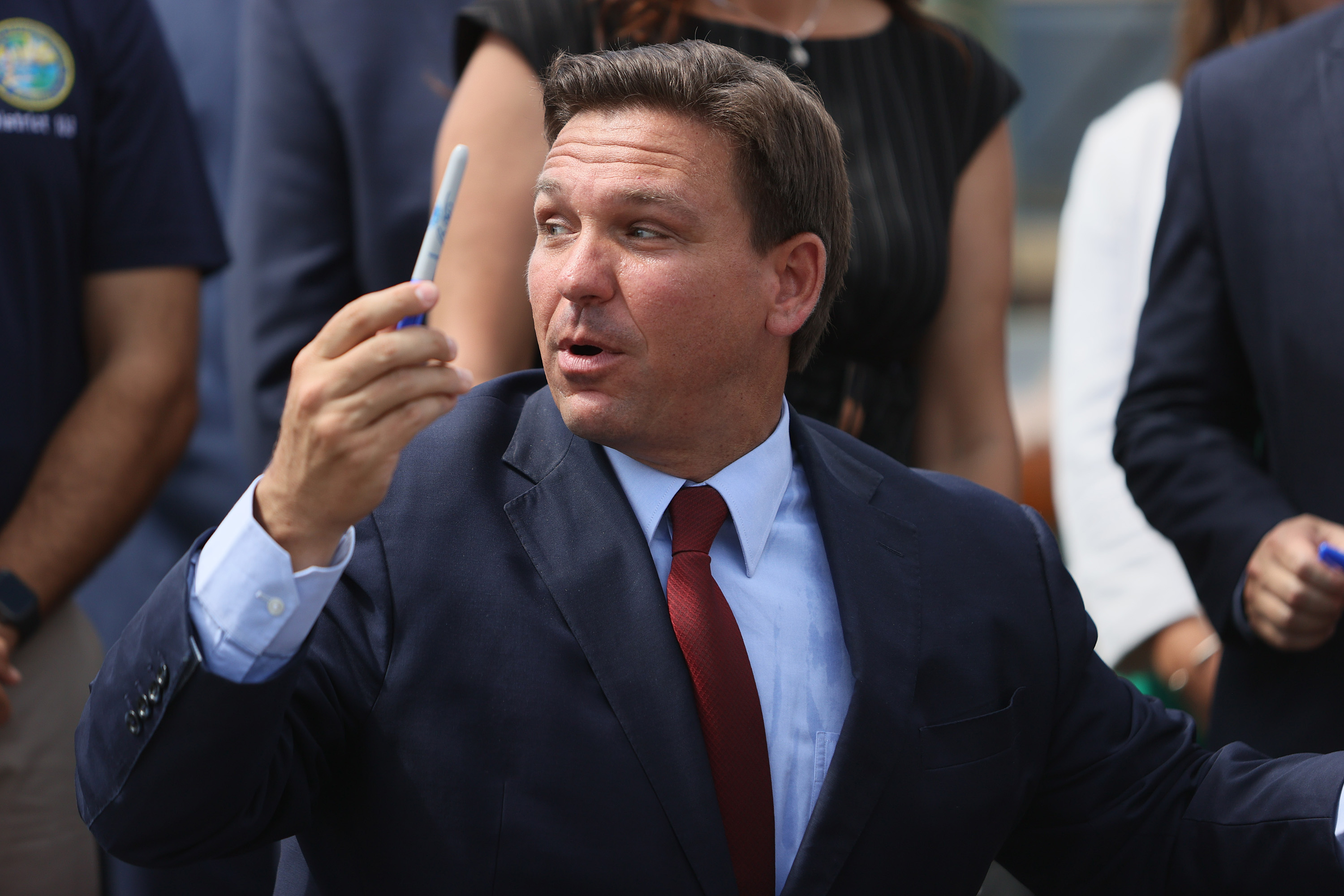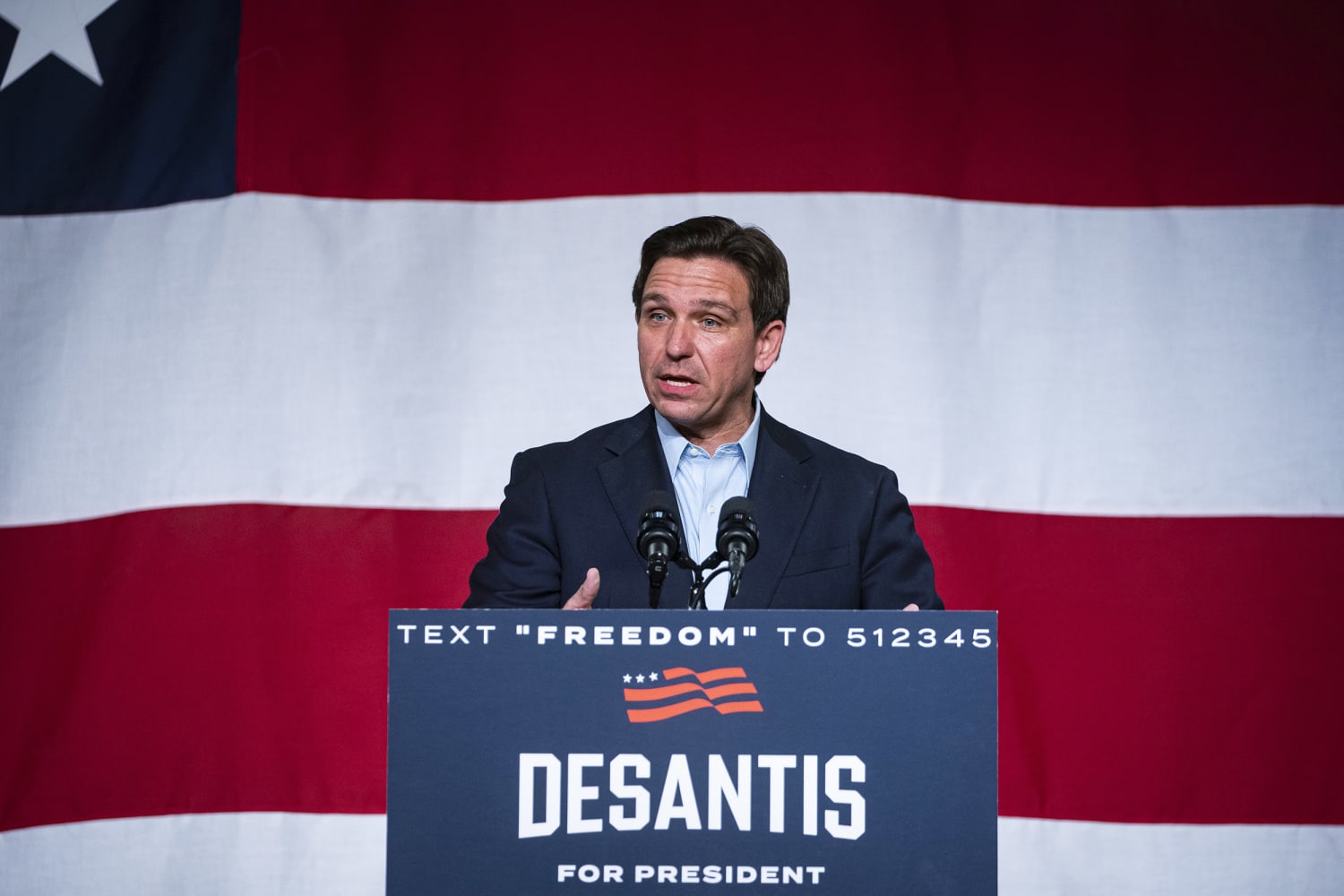Political Implications of DeSantis’ Vetoes: Desantis Vetoes

Desantis vetoes – Governor Ron DeSantis’ recent vetoes have sent shockwaves through the political landscape, with far-reaching implications for the Republican Party, the upcoming 2024 presidential election, and the balance of power between the governor and the legislature.
Governor DeSantis’ recent vetoes have sparked controversy, with many criticizing his decisions. However, it’s important to consider the reasoning behind these vetoes. As Tyler Cherry points out, DeSantis has a track record of prioritizing conservative values and protecting the rights of Floridians.
His vetoes reflect this commitment, and while they may not align with everyone’s views, they represent his efforts to shape Florida’s future in a way he believes is best for the state.
Impact on the Republican Party, Desantis vetoes
DeSantis’ vetoes have ignited a fierce debate within the Republican Party, with some members expressing support and others voicing concerns. Those who support the vetoes argue that they represent a bold and principled stand against the encroachment of government overreach. However, critics contend that the vetoes alienate moderate voters and could damage the party’s chances in the 2024 presidential election.
Consequences for the 2024 Presidential Election
The impact of DeSantis’ vetoes on the 2024 presidential election remains uncertain. Some analysts believe that the vetoes could energize the Republican base and boost DeSantis’ chances of winning the nomination. Others argue that the vetoes could alienate independent voters and make it more difficult for DeSantis to win the general election.
Even as DeSantis vetoes have sparked debates, one can’t help but notice the surge in popularity of North Korean K-pop. North Korean K-pop bands like Moranbong Band and Red Velvet are gaining traction, highlighting the complex interplay between politics and culture.
Amidst the vetoes, these bands offer a glimpse into a different world, where music transcends borders and challenges perceptions.
Implications for the Balance of Power
DeSantis’ vetoes have also raised questions about the balance of power between the governor and the legislature. Some argue that the vetoes represent an abuse of executive authority and that the legislature should have the final say on policy matters. Others contend that the vetoes are a necessary check on the legislature’s power and that the governor should have the authority to veto legislation that he or she believes is unconstitutional or harmful to the state.
Legal Challenges to DeSantis’ Vetoes

Several legal challenges have been filed against Governor DeSantis’ vetoes, arguing that they are unconstitutional and exceed his authority. These challenges have been brought by various groups, including local governments, businesses, and individuals.
Plaintiffs’ Arguments
The plaintiffs in these lawsuits argue that DeSantis’ vetoes violate the separation of powers doctrine by encroaching on the legislative branch’s authority. They also contend that the vetoes are arbitrary and capricious, and that they violate the Equal Protection Clause of the Fourteenth Amendment by discriminating against certain groups or individuals.
Defendants’ Arguments
The defendants in these lawsuits, including Governor DeSantis and the state of Florida, argue that the vetoes are within the governor’s constitutional authority. They contend that the governor has the right to veto any bill that he believes is unconstitutional or not in the best interests of the state. They also argue that the vetoes do not violate the Equal Protection Clause because they are based on legitimate governmental interests.
Potential Outcomes
The potential outcomes of these legal challenges are uncertain. The courts will need to weigh the arguments of the plaintiffs and defendants and determine whether DeSantis’ vetoes are constitutional. If the courts find that the vetoes are unconstitutional, they could be overturned. However, if the courts find that the vetoes are constitutional, they will remain in effect.
Public Reaction to DeSantis’ Vetoes

Public opinion on DeSantis’ vetoes is divided, with polls showing a mix of support and opposition. A recent poll by the University of Florida found that 45% of Floridians approve of the vetoes, while 38% disapprove.
Support for the vetoes is strongest among Republicans, with 62% approving. Independents are more evenly divided, with 43% approving and 42% disapproving. Democrats are the most opposed to the vetoes, with only 25% approving.
The reasons behind the public’s reactions to the vetoes are complex. Some people support the vetoes because they believe that the bills in question were not in the best interests of Florida. Others oppose the vetoes because they believe that DeSantis is overstepping his authority or that he is targeting specific groups of people.
Key Demographics
The key demographics that support the vetoes are white voters, male voters, and older voters. The key demographics that oppose the vetoes are black voters, female voters, and younger voters.
Reasons for Public Reactions
- Support for the vetoes: Some people support the vetoes because they believe that the bills in question were not in the best interests of Florida. For example, some people believe that the veto of the “Don’t Say Gay” bill was justified because the bill would have harmed LGBTQ+ students.
- Opposition to the vetoes: Others oppose the vetoes because they believe that DeSantis is overstepping his authority or that he is targeting specific groups of people. For example, some people believe that the veto of the voting rights bill was motivated by racism.